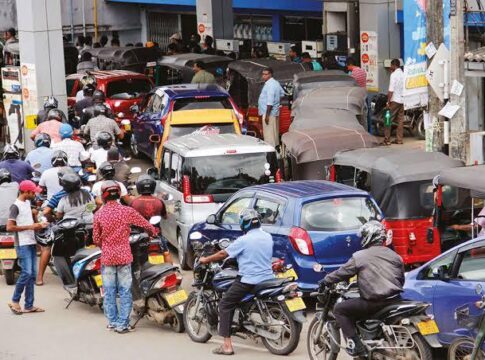Rivers State, one of Nigeria’s most politically and economically significant regions, is now under a state of emergency. President Bola Tinubu announced the drastic measure on Tuesday, suspending Governor Siminalayi Fubara, his deputy, and members of the state assembly. The decision follows months of political unrest and a bitter power struggle that has divided the state’s leadership.
The crisis stems from a fierce rivalry between Fubara and his predecessor, Nyesom Wike, who now serves as the Minister of the Federal Capital Territory (FCT). The fallout between the two has led to governance paralysis, legislative gridlock, and violent clashes between political factions. Tinubu, in a nationwide address, said his interventions to mediate peace were ignored, forcing him to act in the interest of national stability.
“My efforts to resolve the crisis peacefully have been ignored. This situation cannot continue,” Tinubu declared, justifying his decision to suspend Rivers’ top elected officials.
What Led to the Emergency Declaration?
The conflict between Fubara and Wike has escalated over time, spilling into the state legislature. In December 2023, Fubara allegedly ordered the demolition of the Rivers State House of Assembly, citing security concerns. Critics, however, accused him of attempting to cripple the legislature, which was largely loyal to Wike.
READ MORE: EFCC Witness Exposes Alleged N5.8bn Kwara Education Fraud Under Ex-Governor Ahmed
Further tensions arose in February 2025 when the Supreme Court ruled to freeze Rivers State’s federal allocations due to a budget dispute. The court also nullified local government elections conducted in October 2024, compounding the state’s political crisis. In response, Fubara sought reconciliation, inviting lawmakers to discuss a way forward, but his efforts were met with resistance.
Meanwhile, security in the state has deteriorated. Just hours before Tinubu’s announcement, an explosion rocked the Trans-Niger Pipeline in Gokana, a key oil-producing area. Two suspects were later arrested, but concerns over rising insecurity in the oil-rich state remain high.
Fubara: “I Took Steps to Keep Rivers Stable”
Reacting to his suspension, Fubara insisted that his administration had worked to protect lives and property. He stated that he had complied with Tinubu’s initial peace terms, including welcoming back commissioners who had resigned.
“We prioritized peace and constitutional order despite the challenges. Our focus has always been the security and progress of Rivers people,” Fubara said in a statement.
However, he accused lawmakers loyal to Wike of frustrating his efforts to govern effectively. Despite political disagreements, he maintained that governance in Rivers had continued, with salaries paid and key projects executed.
National Reactions: Support and Condemnation
Tinubu’s emergency declaration has sparked a divided response across Nigeria. The ruling All Progressives Congress (APC) has backed the move, calling it necessary to prevent a complete breakdown of law and order.
“Rivers is too critical to Nigeria’s economy to be left in chaos,” said APC spokesperson Felix Morka.
However, opposition parties and legal experts have criticized the action as unconstitutional. The Nigerian Bar Association (NBA) condemned the suspension of elected officials, stating that the constitution does not grant the president such powers under emergency rule.
Former Vice President Atiku Abubakar also weighed in, calling Tinubu’s decision a “dangerous precedent” and accusing him of being a “partisan actor in Rivers’ political crisis.”
What Next for Rivers?
With a retired military officer, Vice Admiral Ibokette Ibas, now appointed to oversee the state, the future of Rivers remains uncertain. Legal battles are expected, as Fubara and other suspended officials fight to reclaim their positions.
Meanwhile, residents of the state, already struggling with economic hardship and insecurity, fear that prolonged instability could worsen their situation. Civil society groups are now urging dialogue between all parties to prevent further chaos.




